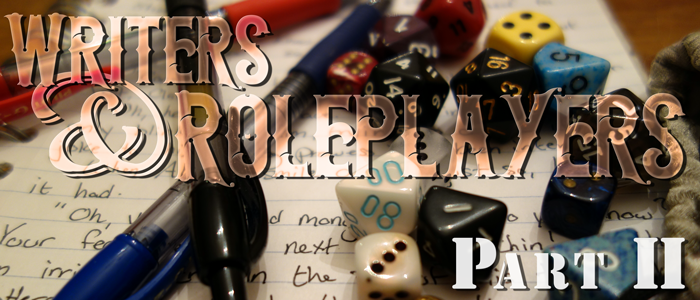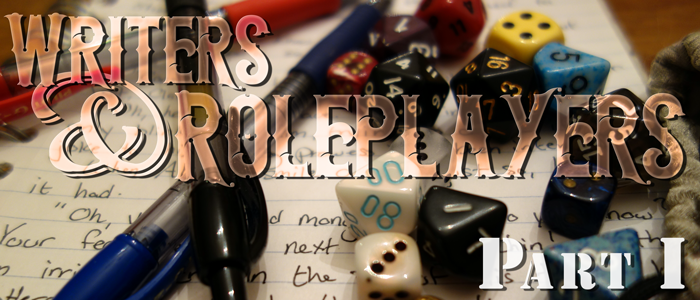I mentioned in my introduction that roleplaying, or any form of collaborative storytelling, often gets a lot of flack from the writing community. I’ve seen it painted as an exercise in infantilism that will hobble a writer’s ability by miring it into strict amateurism. That it’s a childish game at best, a crutch at worst.
Really, I find any writer taking a high horse on “playing pretend,” as so many are quick to call it, hilariously hypocritical. At the end of the day, every writer is just playing with dolls in a world of make-believe and transcribing the events. It doesn’t really matter if we fancy it up by calling the components “characters” and “setting.” It is what it is.
Sort of demystifies the whole process a little, doesn’t it?
That said, I don’t really see what’s so very different about inviting a friend and telling them to bring their dolls along so you can play together. There are a lot of benefits to adding another perspective to your writing; if there weren’t, there’d be no advice concerning beta-readers, critiques, or editors.
But what does bringing someone (or multiple people) along do to benefit your writing? Well, in no particular order, let’s begin.





